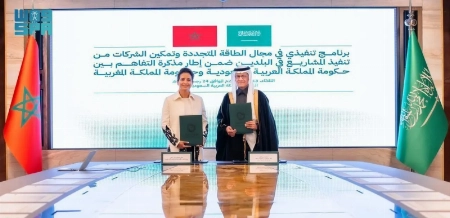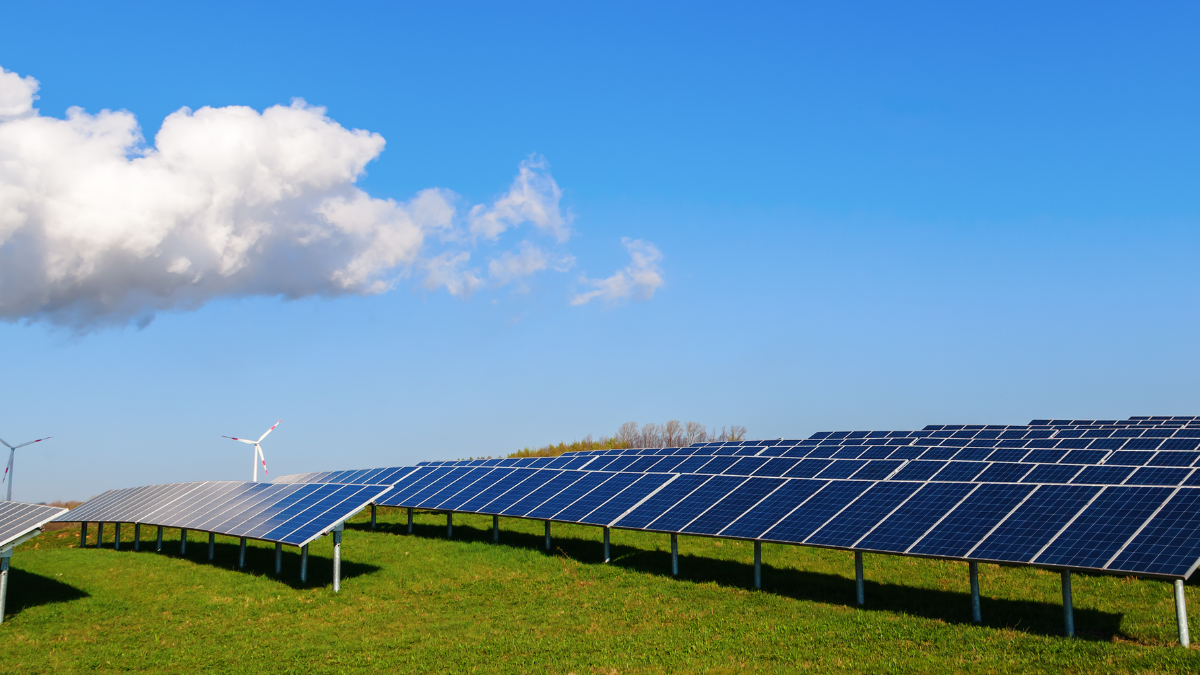
Saudi Arabia and Morocco Deepen Energy Partnership with New Renewables Program

OCP Group Advances Decarbonization Strategy with 202 MW Solar Expansion

Brazil is rapidly positioning itself as a key player in the global rare earths supply chain—a sector critical to the energy transition, technological sovereignty, and economic resilience. Recent announcements from mining companies, investors, and public institutions underscore the country’s unique mineral wealth and its accelerating ambitions to transform potential into production.
This article compiles insights from multiple high-level developments, including those revealed during the Brazil Lithium & Critical Minerals Summit 2025—organized by The Net-Zero Circle by IN-VR in Belo Horizonte. These moves reflect a nation on the verge of becoming a rare earth powerhouse, combining resource availability, industrial vision, and strategic partnerships.
A milestone announcement came from Viridis Mining and Minerals and its joint venture partner, Ionic Rare Earths, confirming the construction of Latin America's first rare earth refining and recycling hub in Poços de Caldas, Minas Gerais. The facility, known as the Centre for Rare Earths Innovation, Technology and Recycling (CRITR), will process both mixed rare earth carbonates from the Colossus Project and recycled neodymium-iron-boron (NdFeB) magnets sourced from industrial and electronic waste across Brazil.
Backed unanimously by the Poços de Caldas City Council and endorsed by the local mayor, the centre is expected to launch operations in late 2026 and aligns closely with Brazil’s “Nova Indústria Brasil” strategy for critical minerals and clean energy. Viridis Managing Director Rafael Moreno stressed the significance of sovereign alignment, noting:
“Global developments, such as the recent multi-billion-dollar partnership between MP Materials and the US Department of Defense, reinforce the importance of sovereign backing in bringing critical mineral projects into production.”
(Source: The West Autralian)
The facility will apply Ionic Rare Earths’ proven solvent extraction technology, aiming to produce separated oxides such as neodymium, praseodymium, dysprosium, and terbium—each at purities above 99.5%. With closed-loop water systems and no radioactive residues, the plant is engineered to meet both economic and environmental standards. Discussions are underway with Brazil’s BNDES and FINEP for federal funding, part of a R$5 billion (approx. US$900 million) initiative to support strategic mineral value chains.
Beyond Poços de Caldas, Brazil’s rare earth momentum is visible in multiple regions. In Bahia, Australian-based Brazilian Rare Earths and Equinox Research are actively drilling hard rock and ionic clay targets in Jequié, where mineralization levels surpass 30% rare earth oxides. Tiago Abreu, Chief Development Officer at Brazilian Rare Earths, highlighted during the Brazil Lithium & Critical Minerals Summit that:
“Brazil could become a leader in the sector, with an estimated reserve of 21 million metric tons of rare earth metals.”
(Source: S&P Global)
In Goiás, Aclara Resources recently opened a pilot plant to test extraction of heavy rare earths (HREEs) from its Carina project. The site is expected to produce 191 tonnes annually of dysprosium and terbium—two essential elements for electric vehicles and wind turbines. To accelerate innovation, Aclara has also partnered with Stanford University’s Mineral-X initiative to apply artificial intelligence in exploration and supply chain modelling.
“By embedding Aclara into Silicon Valley’s innovation ecosystem… we aim to jointly develop smarter, cleaner, and more secure solutions,” said Aclara CEO Ramón Barúa.
(Source: Mining.com)
Held in Belo Horizonte and organized by The Net-Zero Circle, the Brazil Lithium & Critical Minerals Summit 2025 served as a crucial platform for industry alignment. Key players like Serra Verde, Viridis, Aclara, and Meteoric Resources exchanged insights on partnerships, financing, and technology adoption. Many discussions focused on the urgency of diversifying global supply chains away from China, which currently dominates rare earth processing.
“Development of rare earth and critical minerals projects is no longer just a matter of energy transition but rather energy security,” said Brazilian Rare Earths’ Tiago Abreu.
“There is a geopolitical tension that drives us to seek partnerships to reduce dependence on China,” added Aclara's Murilo Nagato.
(Source: S&P Global)
The 2025 edition was not just a venue for announcements—it was a convergence point for global investors, state governments, and local communities committed to building Brazil’s strategic role in critical minerals. A formal announcement on the 2026 edition of the event is expected soon.
The developments unfolding in Brazil signal more than isolated project milestones—they represent a paradigm shift in the rare earth industry. Brazil now offers a complete spectrum of opportunity: from resource exploration and pilot-scale processing to full-cycle refining, recycling, and even AI-driven optimization.
This shift opens the door for:
Brazil’s model—rooted in local content, circular economy practices, and environmental stewardship—is also emerging as a potential blueprint for other resource-rich nations.
Brazil is no longer just a country with rare earth potential—it is fast becoming a strategic anchor in the global clean tech and critical minerals revolution. With coordinated backing from local governments, federal institutions, and global investors, the country is laying the groundwork for a secure, sustainable, and high-value rare earths industry.
In a world seeking resilience in critical mineral supply chains, Brazil’s rare earth ecosystem offers not just resources—but a model for integrated, future-facing development.
As 2026 approaches, all eyes will be on Brazil—not just for its mineral wealth, but for how it chooses to lead.
For corrections, updates, or to share additional insights on this topic, please contact:
Alberto Cruz
Marketing Director, IN-VR
E: alberto@in-vr.co


